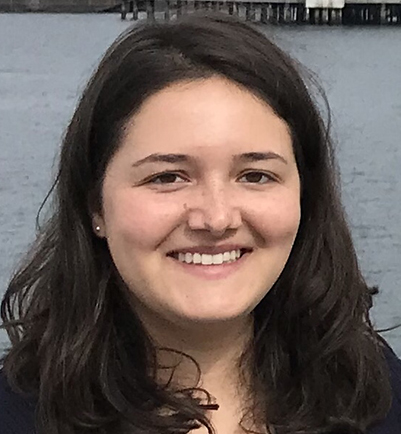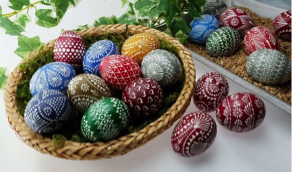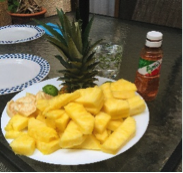First, I have to give my mother full credit for coining the term “cousins by affection.” The definition is: non-relatives in your life who are a part of your family.
For my family, we have four different families we consider cousins by affection. They are more than just friends—they are family, even though they are not blood-related. I even call some members of those families “aunt,” “uncle,” “my second mother,” etc. These four families all come from different cultures and places around the world. They are Jewish-American, Russian-American, Cuban-American, and French-Mexican. Although my heritage is different from these (I am Italian-American and English), I have naturally adapted many aspects of these four cultures into my own life. These aspects include language, food, art, and perspectives on life.
Jewish-American:
- Yiddish: I didn’t realize there were so many Yiddish words in my vocabulary until I thought about it! Schmutz, mensch, schlep, and shtick are some of my favorites.
- Smoked salmon, matzo ball soup, half sour pickles, and other classic Jewish deli foods (I do draw the line at a cow tongue sandwich, although I did try it).
- Self-deprecating humor: Jerry Seinfeld, Sid Caesar, and Billy Crystal are some of my favorite comedians. I even wrote a college paper on the history Jewish-American comedy. I think I understand it well because English culture is also self-deprecating.
- Holiday traditions: Garlic dipped in honey and Russian Orthodox church services for Christmas. And egg decorating for Easter (it’s on a whole other level than the kit you get at the grocery store).
- Love for the piano: I play piano. My childhood piano teacher is Russian, my piano tuner is Russian, and my piano movers are Russian. Even half of my sheet music is in Cyrillic and is composed by Russians.
Cuban-American:
- Cuban coffee—need I say more?
French-Mexican:
- Food: I love the simplicity of French and Mexican dishes. And I value the importance of fresh and high-quality ingredients. And I may or may not put Cholula or sprinkle tajín on everything...
- Spanish language: Although I have never passed the beginner stage, I can decipher Spanish and make my way around the city of Guadalajara just fine. I also call my friends “chicas” and my mother “madre.”
- Mexican music: I love Mexican music. Their technique of singing is so unique and they sing with such emotion. I’ve even learned to not be embarrassed when my mother asks a mariachi band to serenade me at a restaurant. It’s happened more than once.
- Importance of family, especially your elders: My grandparents and great-grandparents are so important to me and I see that it is the same way in Mexican culture. Thinking about how much elders are loved and respected in that culture makes me teary, not going to lie.
- Attitude of loving life and being kind: When I am visiting Mexico, I am always in awe of how warm and kind the people are, regardless of what they are dealing with in their lives. I really appreciate that and in times of hardship or difficulty, it is important to remember that mindset.
- Clothing: I wear my traditional huipil dress I bought at a market in Guadalajara all the time and I always get compliments. The talent and artistry that goes into their traditional clothing is so gorgeous and meaningful.
I understand that I am not fully a part of these cultures, and cultural appropriation is a very serious issue, especially today. But since I love these cultures and my “cousins by affection” have introduced me and included me in them, I can say that they are a part of my identity.
I would love to learn about the cultures of your “cousins by affection.” Have you traveled to their hometowns, gone to authentic restaurants, learned their language, laughed at their jokes, attended dances, or gone to church services with them? Please comment below!
Share this:

About Geneva Cann
A member of the Research Services team, Geneva studied at Smith College and St. Mary’s College of Maryland, graduating with a BA in History and Museum Studies. Before joining the NEHGS staff, she interned at the Peabody Essex Museum in Salem, Massachusetts. She also interpreted at Historic St. Mary’s City, a living history museum in Maryland, as an indentured servant from 1667. Geneva enjoys traveling, reading about the history of the American West, playing piano, and continuing her role as her family's archivist.View all posts by Geneva Cann →


